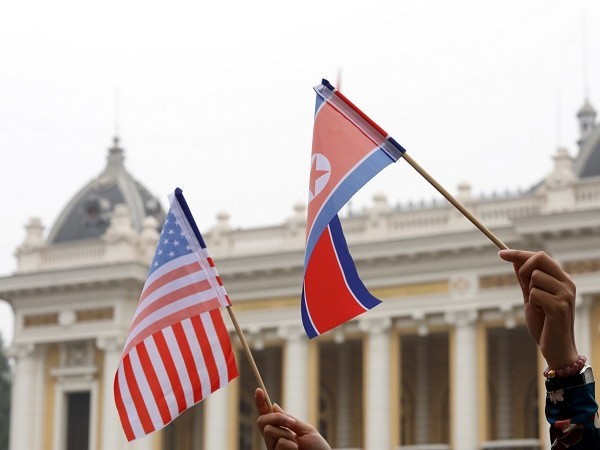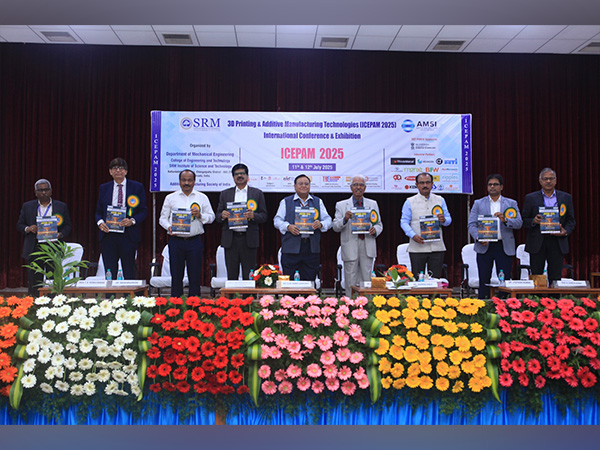U.S. will build on Singapore agreement with N. Korea: Campbell
May 19, 2021
Washington (US), May 19: The U.S. administration of President Joe Biden will build on a 2018 summit agreement with North Korea, White House Asia czar Kurt Campbell said Tuesday, extending overtures to Pyongyang after completing a monthslong policy review on the North.
"Our policy review took a careful look at everything that has been tried before. Our efforts will build on Singapore and other agreements made by previous administrations," Campbell, White House policy coordinator for the Indo-Pacific, said in a written interview with Yonhap News Agency.
It marks the first time a ranking U.S. official has said on the record that the Biden administration will inherit the denuclearization agreement signed in Singapore by former President Donald Trump and North Korean leader Kim Jong-un in June 2018.
Under the landmark agreement, Kim committed to work toward complete denuclearization of the Korean Peninsula and the two sides also agreed to establish new relations and a lasting and stable peace regime on the peninsula.
Trump and Kim held a second summit in Hanoi in February 2019 to come up with a detailed map for the North's denuclearization process, but the talks ended without a deal, bringing the denuclearization process to an impasse.
In mid-February this year, the Biden administration tried to reach out to the North, but the North remained unresponsive. In March, the North confirmed the U.S. efforts to reach out but declared that it will continue to ignore U.S. overtures until Washington gives up its hostility toward it.
Campbell said the new administration's policy toward North Korea is not aimed at hostility.
"Importantly: Our policy towards North Korea is not aimed at hostility, it's aimed at solutions. It's aimed at ultimately achieving the complete de-nuclearization of the Korean Peninsula," Campbell said in the exclusive interview with Yonhap.
"And we're prepared to engage in diplomacy towards that ultimate objective, but work on practical measures that can help us make progress along the way towards that goal," he said.
After concluding its policy review on the North, the Biden administration said that the new policy will seek a "calibrated, practical approach that is open to and will explore diplomacy" with North Korea.
Campbell refused to confirm recent reports that Washington has reached out to Pyongyang for a second time to explain the outcome of its North Korea policy review, saying, "It is important to leave space for private diplomatic exchanges to stay private."
He also refused to put any label on the new U.S. approach toward North Korea but said it will use everything his country has to address the problem that previous administrations have failed to resolve.
"There's a reason we need a new and different approach -- previous approaches have failed. We are under no illusions on how challenging this is. This is one of the hardest national security problems the world is facing. That's why we have to try with everything we have, but also have realistic expectations."
Campbell said it was too soon to discuss sanctions relief for the reclusive North.
"United Nations sanctions on DPRK remain in place, and we will continue to enforce them, including through diplomacy at the United Nations and with the DPRK's neighbors. It's premature to speculate beyond that -- we have far more work ahead of us," he said, referring to North Korea by its official name, the Democratic People's Republic of Korea.
The interview came just days before South Korean President Moon Jae-in visits Washington for talks with Biden on Friday, where North Korea is expected to feature high on the agenda, along with cooperation on COVID-19 vaccines and semiconductor supply chains.
Campbell said the leaders will discuss ways of cooperation related to semiconductors and the outcome of their discussion will include "tangible partnerships related to addressing supply chain security and enhancing public and private cooperation on advanced technology."
He also said that the U.S. currently has no plans to expand the U.S.-led Quad forum involving Australia, India and Japan amid widespread speculation that the U.S. wants Seoul to join the forum widely seen as keeping a growing China in check.
Still, he highlighted the importance of expanding regional cooperation.
"While at this time there are no plans to expand the Quad, our shared values of support for a free, prosperous Indo-Pacific are certainly embraced by many other regional partners and we believe there will be ways to continue to expand regional cooperation. That includes cooperation with the ROK, ASEAN, and other regional partners."
Source: Yonhap








